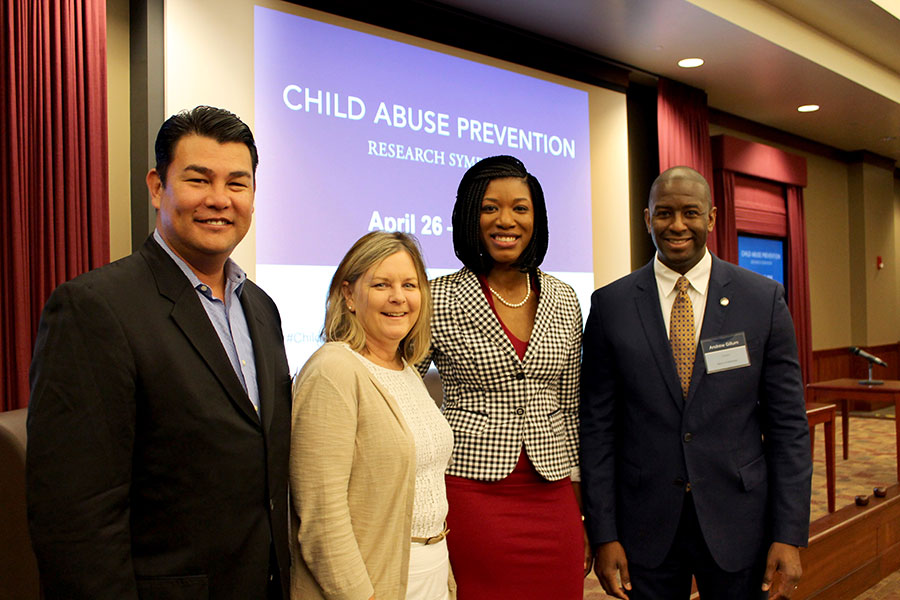
Experts from across the state gathered last month at Florida State University in an effort to improve the standards of child abuse prevention services in Florida.
The FSU-headquartered Florida Institute for Child Welfare hosted the Child Abuse Prevention Research Symposium April 26-27 at the Augustus B. Turnbull III Florida State Conference Center.
“With this event, we have started a critical dialogue about building strong communities that are aimed at keeping children safe,” said Jessica Pryce, institute director. “Agencies are important for education and oversight, but involving communities in prevention strategies is an important component we think should be added to approaches to child safety and welfare in Florida. More research on the development of community helpers and volunteers to facilitate enhanced neighborhood relationships and involvement will be key.”
The two-day event set out to develop effective strategies to overcome barriers to prevention. The audience of law enforcement personnel, medical professionals, child welfare workers, educators and public health officials engaged speakers in discussing collaborative approaches that invest in the wellness of vulnerable families through education and prevention.
Keynote speaker Sacha Klein from Michigan State University’s School of Social Work emphasized interagency partnerships as a way to enhance legitimacy and increase efficiency of service delivery to clients and families, while simultaneously reducing competition. She encouraged the sharing of administrative data between child welfare and juvenile justice agencies for improved youth mental health and substance abuse outcomes.
Klein noted that increased collaboration among child welfare and mental health providers made for better access to mental health services for children and youth, as well as improved mental health outcomes for these clients. She also said the collaboration reduced discrimination toward children supervised by child welfare workers in need of services.
Keynote speakers Gary Melton and Robin Kimbrough-Melton of the University of Colorado discussed initiatives that generate the necessary changes in community norms and enhance successful community engagement.
He discussed how the strong communities model could reduce referrals to child protective services, as well as hospital stays for neglect and maltreatment. Model principles include identification of social and material needs, promotion of reciprocal help and mutual assistance and reliance on community assets.
Teri Saunders, CEO for Heartland for Children, an affiliate of the institute, said Melton’s points validated that child welfare professionals are on the right track regarding community involvement.
Traci Leavine, director of Child Welfare Policy and Practice at the Florida Department of Children and Families, agreed.
“The symposium confirmed that we have the ability to build strong communities around children by mobilizing volunteers who are willing to serve as family advocates who provide support,” Leavine said. “It is not about referring families to programs, it is about assuming responsibility to help them. Dr. Melton said it well. ‘Families shouldn’t have to become patients or clients in order to receive social services and the help they need.’”
The event was a collaborative effort to generate and sustain public conversations about improving child welfare outcomes and child abuse prevention. Partners included the Florida State University College of Social Work and the University of South Florida’s Florida Mental Health Institute.
“Collaborations like this child abuse prevention research symposium help create the momentum needed to address statewide child welfare challenges in Florida,” said Jim Clark, dean of the FSU College of Social Work. “The College of Social Work remains committed as an educational and research institution to enrich and improve the lives of Florida’s children, families and communities.”
A recording of the event will be made available at a later date on the FICW’s website https://ficw.fsu.edu.




